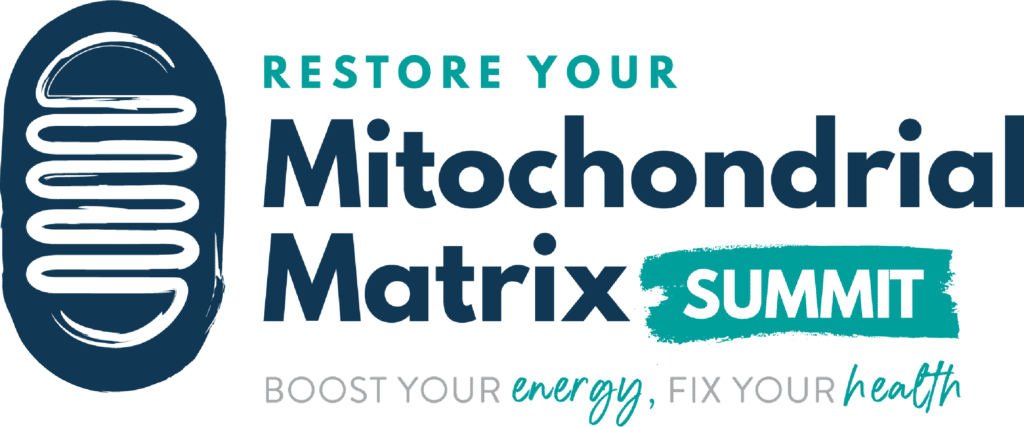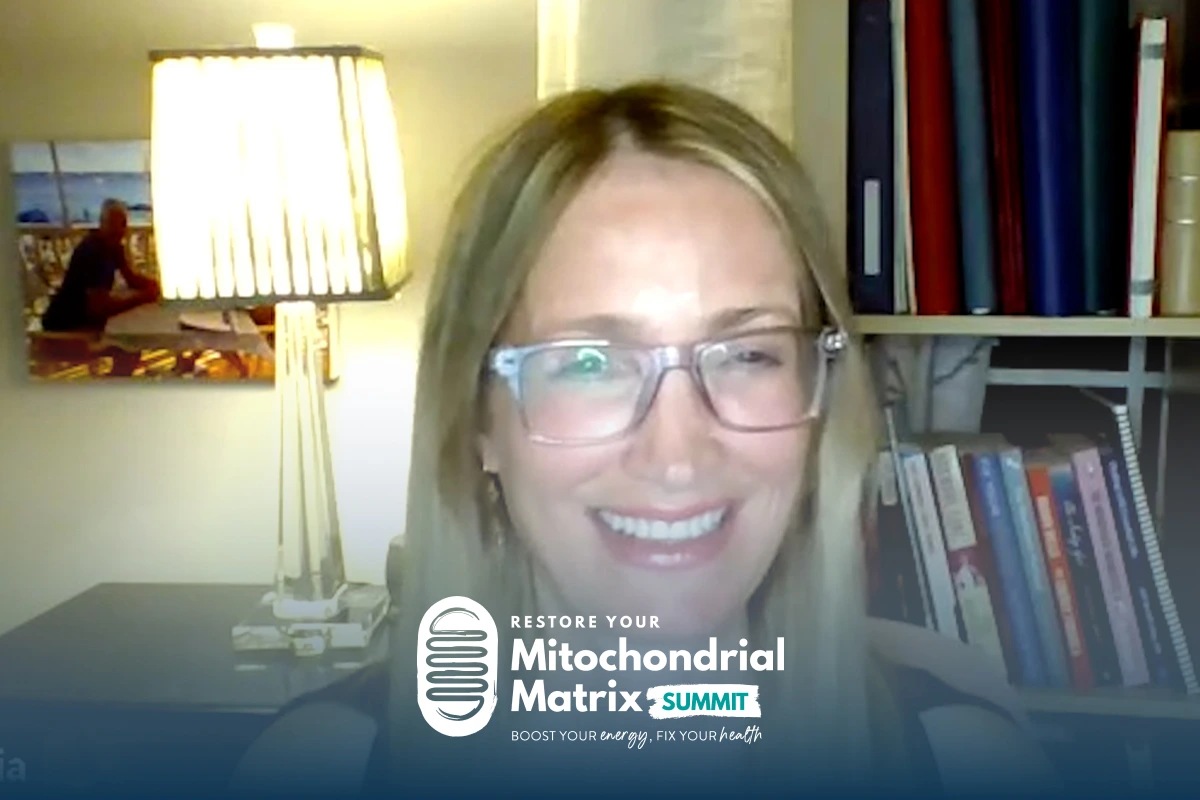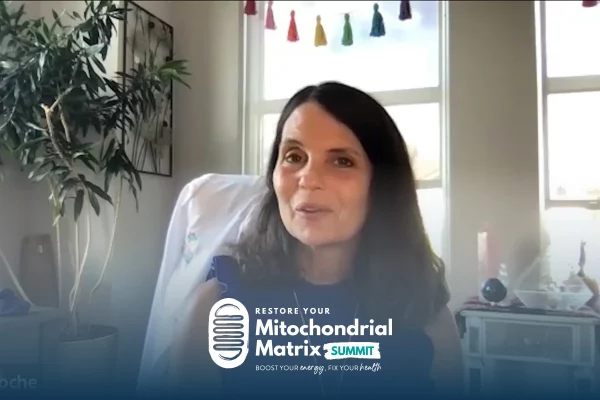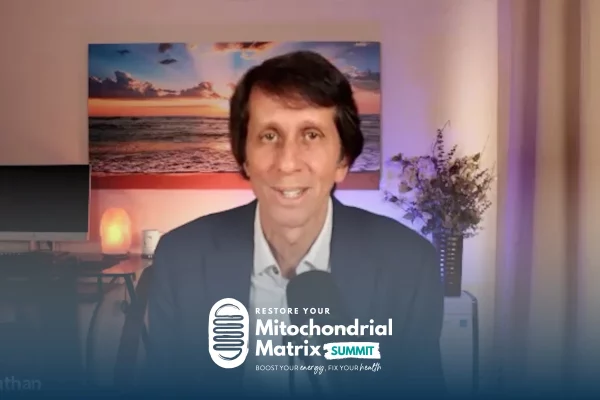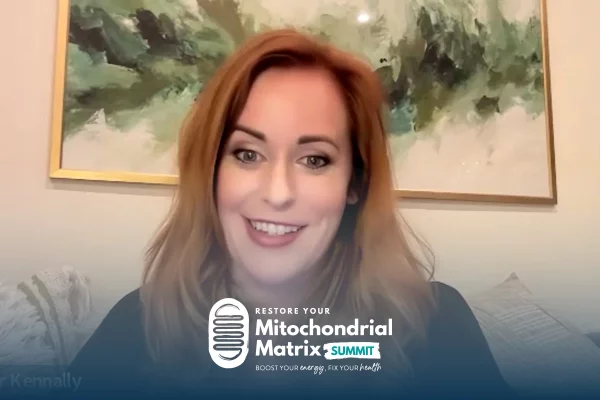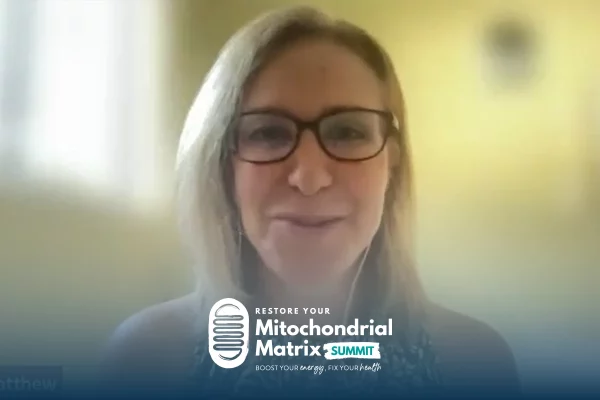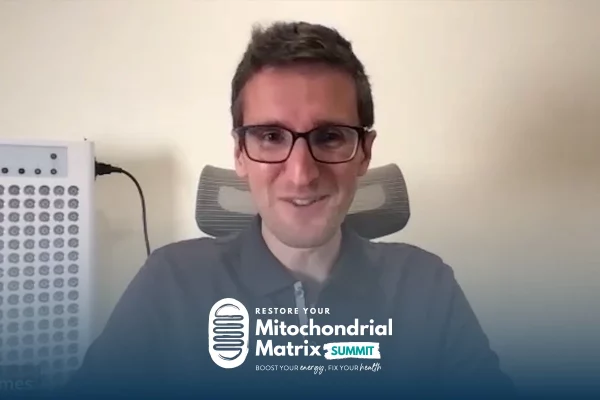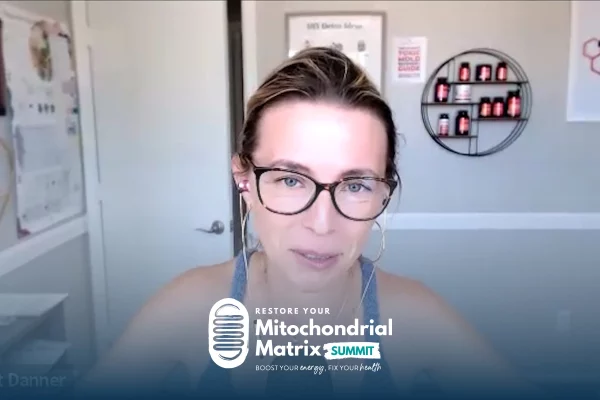Join the discussion below
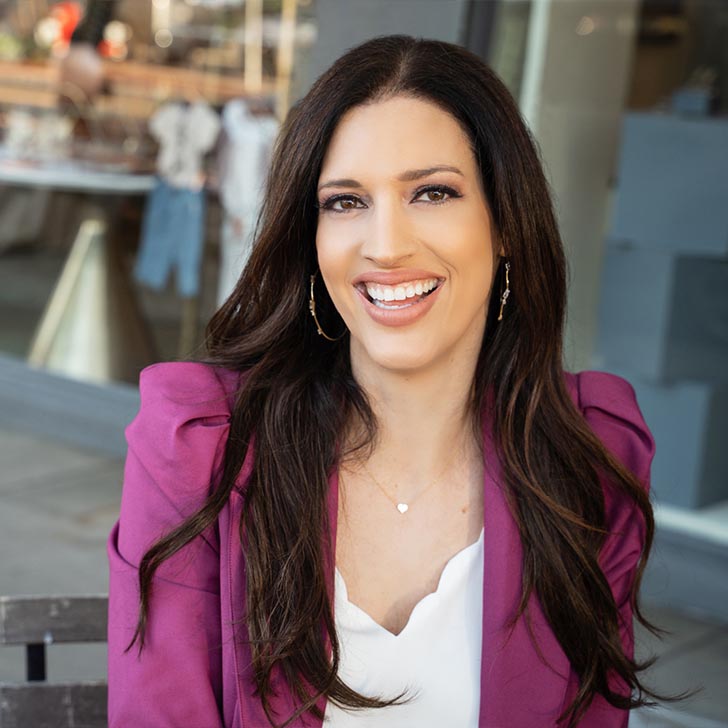
Laura Frontiero, FNP-BC, has served thousands of patients as a Nurse Practitioner over the last 22 years. Her work in the health industry marries both traditional and functional medicine. Laura’s wellness programs help her high-performing clients boost energy, renew mental focus, feel great in their bodies, and be productive again.... Read More

Maria Claps and Kristin Johnson
Maria, an FDN practitioner, and Kristin, an NTP Board Certified in Holistic Nutrition, are plainspoken friends and practitioners who share a passion for women's health, especially women's health at midlife. As both are themselves menopausal, they've refined the art and science of thriving as a midlife woman based on both... Read More
- Menopause is a mitochondrial challenge.
- Learn what we do to overcome it.
Related Topics
Aerobic Glycolysis, Aging, Atp, Bioenergetics, Brain, Estrogen, Female Hormones, Functional Changes, Functional Declines, Glucose Transport, Hormone Health, Hormone Loss, Hormone Replacement Therapy, Hormones, Menopausal Transition, Menopause, Mitochondria, Mitochondrial Function, Ovarian Hormones, Ovarian Senescence, PerimenopauseLaura Frontiero, FNP-BC
Welcome back. You’re watching the Restore Your Mitochondrial Matrix Summit. I’m your host, Laura Frontiero. I’m bringing you experts with fresh ideas and proven methods to help you boost your energy and fix your health so you can build the life you love. And today, I have two special guests, Maria Claps and Kristin Johnson. Hi guys. Welcome to the summit.
Kristin Johnson
Hi.
Maria Claps
Hi, thank you.
Laura Frontiero, FNP-BC
Good. Fun to have both of you here. You have a really interesting business model. You two work together, you interview together, and Maria, you’re a functional diagnostic nutrition practitioner, and Kristin, you’re a functional nutrition therapy practitioner, and you’re good friends. And you share your passion for women’s health, and especially women with midlife health. And you combine individualized nutrition and lifestyle changes, and you tailor it to midlife women’s needs, and you do mindset coaching, you do lab testing and hormone replacement therapy, and really educate women to help them thrive so they can, you know, prevent their health from spinning outta control and just live their best lives. So excited to have you guys here today.
Maria Claps
Thank you.
Kristin Johnson
Thank you. We’re excited.
Laura Frontiero, FNP-BC
So we’re gonna talk all things, hormones and mitochondria today. And for starters, let’s just, you know, before we jump into terminology and menopause, can you just talk about how you guys came together, let’s hear the story here, ’cause I know story.
Kristin Johnson
Oh goodness. Maria, you want me to go? Okay. We get asked this a lot, which is great. I mean, we love it. And it is a fun, you know, sort of unique situation. So, we were both solo practitioners and working in nutrition, and just generalized health and whatnot. And then Maria had already kind of honed in on women in midlife and hormones. I was sort of doing more generalized work. And I started to notice that all of my clients kind of kept coming with the same issues, right? And the same complaints and hormones being kind of the primary issue in their 40s and beyond. And so I started looking for clinical training to start working in some different testing. And got a few different names from some colleagues and Maria’s was one of them.
And so I had sent her a cold email just saying, “Hey, could you tell me what practitioner training you provide?” And she replied with not a lot of information other than, “Here’s my cell phone, call me.” And I thought, “Okay, this is a little strange, but I’ll call this woman.” And we ended up talking for a long, long time on the phone, covering a whole bunch of topics, learned a lot about each other. And when I hung up, my husband said, “I think you just talked to your best friend.” And I started laughing and said, “I don’t even know this woman.” But we ended up, you know, I took her training. She was a wonderful teacher. We just found a lot of synergy with each other. And at one point she kinda reached out with this baited question about where people saw themselves and what they enjoyed doing for their work. And my answer resonated with her. And she reached out and said, “I’m glad you said that let’s talk.” And we just eventually sort of slowly combined our practice, really. I came on board with hers to help out, and then eventually we realized that we had something special. And so we just decided to make it legal. And now we’re each other’s work wives, so.
Laura Frontiero, FNP-BC
That’s a fun story. It’s a fun story. Maria, do you concur? Is that how the story goes?
Maria Claps
I concur and I just will add this because Kristin’s very humble and we have a really great lawyer who brought together our kind of business stuff. And so the lawyer is Kristin. And so I will say that, you know, she takes her kind of passion for law and research and is able to kind of transmit those skills to how, you know, how she and I work together with women. In that she researches, she goes deep. She really gets into specifics when needed. So, we have a great lawyer and now we have a great nutritional therapy practitioner.
Laura Frontiero, FNP-BC
Amazing, amazing. Okay, so, now we know how you guys got together and what you’re doing. So, let’s jump into this topic and can we start by talking about the terminology around menopause? Can you define that?
Maria Claps
Right. So, I’ll start with this. So menopause it’s such a charged topic because, you know, so many people from women themselves to their doctors, to the scientific literature, you know, we’ll talk about menopause and women will be like, “I’m in menopause, I’m going through menopause.” What they really mean is they’re going through perimenopause, right? They’re in that, or perimenopause can also be referred to as the menopausal transition. And that’s that time period where things just start to change. Sometimes, you know, the biggest change that women tend to notice is the cycle change or the things they notice as mood changes, things like that. But, we like to look at it as we’re not so super strict with, Oh, okay, you are technically menopausal when you’ve gone 12 months without a period, right?
We like to try to shy away from that definition because women feel like they can’t take specific action. One of those things is HRT. We don’t need to get into that now, but just other actions in general, they don’t take specific action until they’ve, you know, been able to look in their rear view mirror, “Oh, 12 months have gone by without a period. And now I can kind of do stuff for menopause.” And so we like to say, you know, you can start well before you’re technically menopausal, which is 12 months without a period. Anything prior to that, you know, those years of two to five, you know, some people say up to 10 or 12, I’m skeptical about that, about perimenopause. But those years leading up it’s ovarian senescence. The ovaries are really kind of in that wind down, so.
Laura Frontiero, FNP-BC
Got it, got it. All right, so now we know kinda when menopause is happening, when to start thinking about it. Now, obviously it occurs alongside of aging. So, you know, talk about that because you’re trying to figure out what’s going on in your body, and you’re aging at the same time.
Kristin Johnson
Yeah, I mean, there’s a lot of kind of simultaneous and very related functional changes that are happening, right? We see these functional declines happening as a result of aging. And we tell women all the time that even if you keep your hormones, till you’re 90, you’re still going to have some of these functional changes happening solely because of aging. Women we kind of take it the worst because we layer that start of aging, kind of the 30s and 40s, kind of the start of the decline. We layer that with this decline in hormones that’s starting. And the problem is, there’s a lot of crosstalk between different functions in the body and female hormones.
So, as one starts to change, the other starts to adapt and it’s honestly not a great adaptation, is the result, right? And so in this context, the mitochondria, we see that aging, but what people don’t understand is that those beautiful little organelles have an entirely tight relationship with estrogen. So, as women are losing their estrogen over this slow decline, we sort of exacerbate the effects of aging. And men don’t have it the same way, right? Their hormones don’t fall off a cliff and sure as heck don’t change as early as ours do. So, you know, that piece of it, it’s like we have this layered scenario and a lot of women either attribute it only to their hormones or only to aging. And they don’t realize that it’s really both.
Laura Frontiero, FNP-BC
Yeah definitely. And so today we’re really gonna dig in and talk about the loss of ovarian hormones and how that’s connected with the decline in mitochondria, bioenergetics in the brain. So can you speak into that? Let’s have a good talk about that. So people really understand how ovaries, hormones, mitochondria, brain, it’s all connected.
Maria Claps
Yeah, well, the bioenergetics in the brain, ovarian hormone precedes that loss. And there are other things that we don’t exactly know why the bioenergetics of the brain fully kind of lends towards an Alzheimer’s presentation in some women, but we know that estrogen definitely has a lot to do with that. And so it’s those ovarian hormones will proceed that loss. When you think about like the average age of the Alzheimer’s patient, I believe Laura, maybe, you can be more specific with this is in their 70s, right? Well, we’re losing those hormones at around 50 years old. So, you know, we’ve gotta start thinking 20 years at minimum prior and start taking action then, because that estrogen loss is a principle regulator of mitochondrial function. So when we lose it, it’s a big deal.
Laura Frontiero, FNP-BC
It is a big deal.
Kristin Johnson
Yeah, and in the brain specifically, you know, we have to be careful sometimes ’cause I think people hear me and Maria and they think, “You guys think everything’s, you know, hormonal related.” And you don’t wanna be that person who has a hammer and sees everything as a nail. But the reality is, in the female body, estrogen’s this regulator of so many things and specifically in the brain, it’s the regulator of the metabolic system of the female brain. So, when we have it, you know, regulating glucose transport, ATP, you know, aerobic glycolysis, all of these things that are really impactful to the bioenergetics of the brain. So, that piece of it, you know, we really can’t overlook, is that as, you know, we’re losing estrogen, there is a direct impact on that bioenergetic system in the brain.
Laura Frontiero, FNP-BC
Yeah, and so can you speak into a little bit, how you approach this in your practice. What do you do to help women really maintain estrogen to really support their health in all ways and mitochondrial health too?
Maria Claps
So, we kind of led with estrogen and kind of dropped the idea of hormone replacement therapy. We actually kind of leave that out of the picture for quite a while, because there are other things that will affect the bioenergetics of the brain. And one of them is, you know, how the body processes and handles glucose, or sugar, or starch, or carbs. I kind of somewhat use those words interchangeably, but you know, it’s just that carbohydrate load that we could get away with at 20, 30 maybe, you know, early 40s, we can’t anymore. And so that’s not good for the brain either. Again, just leaving estrogen, estrogen replacement, hormone replacement therapy out of the picture, you’ve gotta really be careful with what you eat, because that’s just another regulator of the body when estrogen is gone.
And you know, Kris and I speak in terms of gone, is it technically gone? No, we have some estrone, we have 18C bit of estradiol. So, for all intents and purposes, we kind of use the terminology, it’s gone. So when it’s gone, we cannot effectively use glucose like we used to. So, we have to really, really minimize it. And we put the focus really squarely on protein, you know, with the moderate amount of fat and fairly low carb, depending on a woman’s activity level and need to lose body fat. But, you know, honestly, even if she’s, you know, fairly lean, we’re still not gonna recommend a high carbohydrate diet. Just because again, it’s not just about how we look, it’s about what’s that excess body fat doing to the brain, so.
Kristin Johnson
Yeah. We definitely do a lot of work on metabolic health with women and getting them to understand that, that metabolic arrangement usually starts in their 30s, and they have more influence over it than they realize. And I think the hard thing is, whether it’s, you know, after childbirth, or just general shift in our 30s of our metabolism, women unfortunately adopt a bunch of lifestyle habits that don’t play well with this changing metabolism. And, you know, usually it’s going fairly low, animal protein, heavily plant based. They do a lot of fasting. They invest in cardio, you know, God bless peloton, not really, I know like, they really start to shift. They follow calories in calories out, right? They do all these things that they think is right, because that’s what we used to do. And that worked when we were younger. But the problem is it’s really rooting this metabolic arrangement for them. And what’s scary is when progesterone starts to decline, which is part of our female profile as well.
We see a lot of mood changes, cognition changes, anxiety developing. And then a lot of women will come to us and say, “I feel like I’ve lost my brain. Like I don’t know who I am any longer.” And while yes, the HRT and hormone discussion is going to come on the table at some point, we really try and get them to focus first on, okay, what are the lifestyle foundations that you have in place right now that need to be adjusted for this period of life? You know, because they see this as their body kind of rebelling against them and breaking. You know, my body’s failed me, et cetera. And we have to gently sort of tell them, “You had a role in this.” You know, and so, because you had a role in this, that’s a great thing. It means you actually have some agency over making change too. And so that’s what we try in our work is, to get them to understand those basic things. The sleep is a huge piece of it. We all know how much the brain needs sleep. How many midlife women are not sleeping, like most of them, right? And they’re sticking on blue light blockers, but then they’re scrolling on their phones in bed. I mean, it’s just ironic. So, when women come to work with us, really try and educate them on how they do have levers in their control to address this metabolic piece and then teach them.
Laura Frontiero, FNP-BC
And on this metabolic piece, you know, you mentioned heavy workouts are probably not serving them, the way they were eating, isn’t serving them any longer. Can you speak into how you would support someone? You mentioned that they’re intermittent fasting, and it may not be serving them. So what would you recommend?
Kristin Johnson
Yeah, I mean, we recommend that women really adapt all of these things in their life to prioritize skeletal muscle. Because at the end of the day, that’s gonna be their engine for metabolic health. And, you know, getting women to adjust that mindset, to lifting heavy things, moving away from the cardio, you know, time restricted eating can be really powerful. And I think for those who come in with a lot of excess adipose tissue and things like that, we do need to help them resensitized to insulin sensitivity. So, obviously some fasting might be helpful. But the vast majority of women, they just need basic 12, maybe 14 hours of not eating. You know, we see their food journals, they’re eating at 9:30 at night, and then again at six in the morning, you know, we just need to kind of make them aware of those things.
So, we do advise, you know, sort of this digestive break, so to speak, to let the body chill out a little bit, get some restorative sleep. We definitely focus on the animal protein piece, along with the strength training, because those are your two, you know, components that are gonna maximize skeletal muscle and change their metabolism, both in their brain, their bones, their body, everywhere. So, we’re big proponents of animal protein. Some women don’t love that, but if they don’t like it, we find that it’s often because they’ve lost their digestive capacity for it. So there’s a little bit of work on that. But really just, you know, kind of shifting their lifestyle choices to optimize for that skeletal muscle.
Laura Frontiero, FNP-BC
Great. Maria, anything to add to that before I move on to the next question?
Maria Claps
It’s underlies, there is the ability to digest that animal protein. It has to be a complete protein. That’s why you’re hearing us say animal protein. It has to have all the amino acids. So, and again, Kristin touched on it. You know, women shy away from that. Maybe they feel it’s not feminine, you know. We think salad with a little bit of chicken, you know, and a few walnuts on top. I mean, there’s nothing wrong with salad, but what we see again in this life stage is, as women are putting on body weight, they’re thinking like, “Well, let me just have a big salad.” And what happens is, that salad kind of tends to displace the amount of protein that they should be eating, or they’re just not eating protein again, because digestion is off. So we would say, you know, digestion’s super important for healthy aging, super important. And preserving that is key.
Laura Frontiero, FNP-BC
And how much protein are you recommending for peri- and pre-post-menopausal women?
Kristin Johnson
Yeah, we follow the one gram per pound of body weight. And we would say ideal body weight. Obviously there’s some women who come in, they need or want 20, 15, 30 pounds, whatever off. So, we say, you know, what is your goal weight, and get that in protein daily. And it’s a huge shift. We have wonderful women who really think that they’re choosing correctly, you know. They’re eating organic or they’re choosing, you know, regenerative farmed meats. And, you know, they’re doing the right things. It’s just their distribution of macronutrients is not favoring the protein piece. They need to get that. It’s a satiety issue, it’s, you know, your glucose disposal depends on your muscle, you know, so there’s so much to it. So once they learn the why, they’re more willing to adopt the what.
But for many of them, it’s not just, they’ve lost their digestion. They’ve also lost their, I don’t wanna say appetite, but they don’t have hunger any longer, ’cause they’ve been underfeeding themselves for so long. And we met with someone today, who’s a wonderful woman. She has very athletic body. She’s lean, appears metabolically healthy, and when we told her she needed about 145 grams of animal protein a day, and then we looked at what she normally eats, she was getting maybe 80 grams. And so, you know, coaching them into, what does this look like? How do you accomplish that?
But that piece of it, you know, there’s also a per meal. This is getting a little technical, but a lot of women distribute their protein heavy on the dinner side, right? So their breakfast is maybe two eggs and a cup of coffee. And then their lunch is that salad with maybe a sliver of salmon. And then dinner they’ll have the steak or burger with their husband or something. So we try and get them to understand that if our goal is muscle protein synthesis, we need to be getting a minimum of 30 grams a meal. And then over the course of the day, we need to be getting that one gram per pound of body weight. So, it definitely requires attention to both distribution as well as total quantity.
Laura Frontiero, FNP-BC
Thank you. You know, I’m hearing that you really, really focus on the importance of animal protein and I can’t agree more. Can you speak a little bit into vegetarian diets and what’s lacking there. ‘Cause you mentioned you want complete proteins, all the amino acids. I mean, I’m sure there’s people watching who are vegetarians. So, let’s speak about that a little bit. It’s kinda like the elephant in the room right now. ‘Cause we’re talking about animal protein.
Maria Claps
Well, I will kind of weigh in with something and let Kristin wrap it up. But so, for me, what I find the biggest thing and this is gonna be for most women, is that, you know, if you’re really careful, like let’s be real here. You can combine right your different grains, and your beans, and you can get all the amino acids. First of all, our women are way too busy to do that, okay? Second of all, even if you were able to get all those amino acids in, you’re also getting like so much carbohydrate to actually meet your protein. And Kristin, what did you say is it like six cups of quinoa to meat in
Kristin Johnson
And chicken breast.
Maria Claps
One chicken breast, okay. So, that’s not healthy. That’s not healthy. That’s really probably not healthy for anyone at any age. It’s just a huge carbohydrate hit. It’s orders of magnitude worse for, you know, say, we’ll just say women over 35 or 40 whose hormones are starting to fluctuate downward. And again, that whole insulin glucose sensitivity gets lost when we loose that estrogen, so.
Kristin Johnson
Yeah, I mean, so Maria hit on it. You’ve got the excess carbohydrates that come along with a plant based diet in order to achieve your protein goals, but you also have to realize that a lot of plant proteins are actually directed at oxidation, and they’re not actually brought into the muscle protein synthesis equation. So, you know, it’s what the protein does in the body that also matters. And animal proteins just take the cake when it comes to muscle protein synthesis. You also have bioavailability, you know, there are certain nutrients in animal proteins that require no conversion. Whereas in some of their plant components, they require conversion. An example would be, you know, the beta-carotene retinol versus provitamin A. Looking at carrots versus what you might get in a steak.
Similarly, flax, great omegas, but you need to convert those. And some people actually have genetic snips that avoid the conversion to get into the EPA and DHA that you could just get from eating fish. So, you know, there’s the carbohydrate load, which is gonna come with, you know, volume of food, excess, I should say, then you have the bioavailability, then you have things like heme iron. You cannot get from plants and you absolutely need that. Vitamin B12, D3, I mean, we go on, there’s so many micronutrients, and, you know, yes, you can isolate these micronutrients in some plants, not all of them, like the D3 and B12 are only gonna be found in animals, but just because you can isolate them in the lab, doesn’t mean that your body actually synthesizes them from plants.
Whereas from animal proteins, they’re almost perfectly synthesized. So, it’s that, and then the various amino acids each have roles in contributing to anti-inflammation in the body and contributing to immune system regulation. Things that the aminos lacking in plants are not gonna contribute. So, we are pretty adamant about that. Because there’s just such a broad spectrum of benefit from animal protein versus plant protein. We’re not antiplants. It’s just, they’re not a protein.
Laura Frontiero, FNP-BC
Yeah, I’m glad we’re talking about this. And I know it’s kind of a side note that I’m taking you guys off on a tangent.
Kristin Johnson
That’s okay.
Laura Frontiero, FNP-BC
But you explain it really well. And I think it’s really important that people hear this. Now, what, if you have a vegetarian who’s committed to start eating animal proteins, but it just kinda revolts her. Like it’s hard because she hasn’t eaten, you know, animal protein for a long time. Do you have a way to ease people in to help them kinda build that muscle again of eating animal protein?
Kristin Johnson
Yeah, we definitely do. We recommend, you know, start with basic like sipping on bone broth, right? Just sort of resensitizing the pallet to the, you know, umami of animal proteins. Stewed meats, ground meats, things like that. Making soups are a very quick and easy way. It’s kind of predigested especially the stewed meats, and then supporting their digestion is another piece of it. I think sometimes when we feel that sort of instant bloat or kind of a rock in the gut, it sort of triggers this brain response of like, nausea. This isn’t good for me, or I don’t like this. So if we can help with supporting stomach acid and the enzymes that have sort of been dormant because they haven’t been called upon due to lack of exposure to animal protein, it really can sort of make this a more enjoyable experience.
And you know, whether it’s starting with fish, or eggs, or whatever, but just slowly easing into it, when women are willing to commit to that, they’re like poster children for health. They come out, they’re like, “I feel like my brain is on fire. I’ve never felt this good. I have so much energy. My mood is improved.” And you know, that’s another piece. Like we can’t make our neurotransmitters without some of these aminos. And so all of that, it’s just such a beautiful kind of metamorphosis when we see women who’ve been heavily plant-based, add animal protein, they’re the ones who just blossom. So, it’s pretty fun to watch. And I think once women trust that process, and we can support them through it, it becomes much more palatable to ’em.
Laura Frontiero, FNP-BC
I love that we’re talking about this. And thanks for going down that kind of side shot. I always tell my clients, you know, eat dinner for breakfast, right? ‘Cause breakfast food is so carbohydrate laid out. I’ll share a quick story. I was just in Fort Lauderdale at the A Forum Conference and the hotel we were at did not have room service, and they did they did have refrigerators. Of course, you don’t have a way to cook in a hotel room generally, unless you bring a skillet with you, you know, electric skillet.
Kristin Johnson
Yeah.
Laura Frontiero, FNP-BC
So I put in, you know, an Amazon grocery order and what I had delivered, meat. So, I was eating, you know, chicken for, you know, cooked chicken and goat cheese and literally twice a day. And then I’d just go out and eat dinner. But that is my hack. When I go to hotels, is I have, you know, that type of ready to go, just eat meat. And I basically eat that the whole time. And then of course, some other easy dry things, you know, like nuts and seeds or whatever, but yeah, that’s my hack. I have my animal protein. I feel terrible without it. Okay.
Maria Claps
People will be surprised that, you know, I will have steak or salmon for breakfast. I’m like, “I feel amazing, why wouldn’t I not?”
Laura Frontiero, FNP-BC
Yeah. I love eating dinner for breakfast. It’s the best. Everybody looks at me cross-eyed when I tell ’em to do that, like, “What?” Try, you’ll like it. Okay, so back to our beloved mitochondria. So, let’s jump into the link between mitochondria and the issues of cognition. We’ve been talking about how your brain feels better when you eat meat and, you know, with women and aging, we’re thinking about dementia, Alzheimer’s, so what’s the link there?
Maria Claps
Well, the mitochondria actually they help us create our estradiol, right? And the brain is actually animated and runs on estradiol. So, when we lose that, I mean, that’s thought to be one of the underlying principles as to why women get more Alzheimer’s than men do, so.
Kristin Johnson
Yeah, I mean, estrogen’s a huge factor in synaptic function and plasticity. And you know, what are the two things that we have alterations in that lead to these cognitive changes and get into the dementia? And then, you know, we’ve talked about the metabolism with glucose in the brain, and there’s so much more about, you know, Alzheimer’s and certain dementia related conditions being this sort of type three diabetes. And looking at the role of these beta-amyloid plaques. And estrogen actually prevents plaque buildup both in the arteries and in the brain.
So, you know, when we lose that piece of it, we are just really vulnerable to this development of these cognitive disorders as women. And it’s, you know, it shouldn’t be that surprising to most because if you sat back and looked at the percentage of women, or the ratio of women to men, with Alzheimer’s and cognitive decline, it’s so heavily biased towards women. And that’s not, you know, kind of an interesting occurrence; it’s directly related to our estradiol decline.
Maria Claps
And I’ll add this. And that is that, you know, we think of the inflammation being like the predisposing factor towards Alzheimer’s disease. And people tend to be kind of shocked when I say this, and I’d like to just put it out there fairly bluntly. And that is, if you are in menopause, you are in a default state of inflammation. Now, that inflammation can be mitigated by your diet and your lifestyle for those women who have committed to never using hormone therapy, or for the subset of women, you know, small subset of women who can’t, you can absolutely still do things. But without estrogen, as a menopausal woman, you are basically inflamed.
Kristin Johnson
Yeah, that’s like a smoldering fire. That’s gonna be present in your body all the time.
Laura Frontiero, FNP-BC
Wow. Wow, so I think you’re the first people on this summit really making the connection between estradiol and mitochondria. Excellent. Now, I wanna talk about something, the critical window hypothesis with regards to hormone therapy. Can you tell us what that means? What it is, what to do about it?
Maria Claps
Yeah. So, what that means is start now, I’m just kidding. So, basically we want to get, starts about getting hormone therapy on board in the body, able to be used while we do not, you know, we’re not in that prodromal phase, or hopefully we don’t think we’re in that prodromal phase of Alzheimer’s disease, but we wanna start it like soon after menopause. I don’t know if the critical window hypothesis, if it’s five years or 10 years, but you know, let’s just say it’s five years. Honestly, the sooner, the better. In fact, you know, might be a little bit too much of a cat out of the big to say this, but we don’t even think you have to wait till that full menopause. Like you’ve gone 12 months without a menstrual cycle. But so that’s what it is. You need to start it ideally, while you’re still healthy before you’ve had any kind of obvious manifestations of Alzheimer’s.
Kristin Johnson
Yeah, I think that, you know, piece of it is what so many doctors miss is that they relied upon a really poor study, which we can name because people talk about it. But the WHI, Women’s Health Initiative, you know, it was poorly designed. Their subjects were not healthy women. And in addition, they used really bad hormones, but essentially one of the conclusions that came out of the WHI, they had kind of an adjunct study called the memory study. So it’s called WHIMS. And they looked at that and said, “Oh gosh, these women developed Alzheimer’s, it must be the hormone therapy that caused it.” Well, why that’s relevant to the critical timing hypothesis is because, if you’re gonna start replacing hormones, you wanna do it while your neurological system is still somewhat intact.
And that’s going to mean starting it usually at, or before the time of menopause. And what happened in WHIMS study, is that these women were, you know, 65 plus. So they were more than 10 years past their menopausal kind of, you know, line in the sand. They were metabolically incredibly unhealthy. They were obese. They were former smokers. Many of them had type two diabetes, very few of them, well, none of them really received any pre-screening. Now, hormone therapy or not, any woman who at 65 has that history metabolically and that much adiposity, and that much glucose, you know, an insulin resistance and whatnot. Her odds of Alzheimer’s and cognitive decline are quite high regardless of the HRT.
So, the conclusion that was drawn from that study was incredibly erroneous. And, you know, there’s more, there’s kind of this increasing body of clinical evidence. That’s showing that this critical window of estrogen benefits cognitive health, when, you know, it’s given kind of in this thing. And that goes back to that whole estrogen’s impacts on healthy cells, you know. So if we have healthy cells, and estrogen’s declining, let’s put the estrogen into the tank before those healthy cells are kind of, you know, too far gone to really be helped. And that is kinda what gets into that critical timing.
Laura Frontiero, FNP-BC
Can you guys talk a little bit about, since we touched on hormones, you said they used bad hormones and yeah. The Women’s Health Initiative, we all know that the study was flawed. Well, maybe people don’t know that. We practitioners know that, but, I mean, Western medicine hinged every decision moving forward, you know, and just halted people from hormones immediately. I was working in the clinic in Western medicine when all this went down. And so can you talk about how you do things different? What kind of estrogen are you using? How is it not…
Maria Claps
So we actually don’t prescribe, we just educate on hormone therapy and we actually really enjoy having that, you know, degree of separation, because we’re not really selling anything. We’re selling empowerment and you really understanding what can be done. But we do prefer bio identical hormones, and, you know, people have to realize that’s not just compounded. That’s like not just a cream that you get from a skilled compounding pharmacist that can be, you know, FDA approved formulations as well. So like the patch, right? We, you know, don’t prefer oral. And so that’s what they use in the Women’s Health Initiative. They used oral and it was Premarin, which is really a horse estrogen, which it’s just much more estrone than it is estradiol, even so, that was really not the issue with the Women’s Health Initiative.
It was really the progestin which was hydroxyprogesterone acetate, which was really just the more harmful compound. Unfortunately, I don’t know, estrogen took the rap. Yeah, so, Laura, you know, we said, we do prefer bioidentical hormones, Kris and I have said, you know, we get into this, like in depth with our clients and probably put this in our book one day. But if there was nothing, this is how strongly we feel about how beneficial estrogen is. Is if there was nothing available with Premarin, we would both take that, okay? We, we would, if there was nothing else available. But the great news is we live in an amazing time, and, you know, there is a lot of options available to women and how they wanna do it, just the formulation and how they wanna approach it, yeah.
Kristin Johnson
Yeah, and, I mean, we try and teach that whole spectrum to women, right? We kind of tell ’em like, “The very worst thing you could do is nothing.” And then we sort of have this, you know, how do we move along the spectrum? If we’re gonna do something, let’s at least avoid the synthetic progestins. If we’re gonna do something, let’s definitely not do pellets. And then from there, we sort of teach them, you know, here are your options and we recognize every woman’s got different needs and different goals, right? And so we try and make sure that if a woman chooses not to do HRT, she understands the imperatives of not doing it. We also try and teach that if a woman chooses to do HRT, that the practitioner needs to be committed to kind of the nuances of it, and skilled in the art of it, and committed to facing any obstacles that they may have.
And that’s often what so many women meet up against when they first kind of wade into the waters of HRTS. They get a well intentioned prescriber, who isn’t very skilled or isn’t super committed. And they, you know, the women don’t have this amazing experience, and some may have a poor experience depending on how badly it’s designed or what their metabolic health was going into it. We always tell women, “Look, you wanna go in being the perfect host for your HRT.” And so too many women go in, not as a great host. And then they sort of stop and they quit and they conclude HRT didn’t work for me, or HRT is bad. And so that’s really what Maria and I kind of our deepest passion, is helping women understand, you know, what are the downsides of HRT when done poorly? What are the upsides of HRT when done well? And sort of what can you design for an HRT plan and who might be a great provider for you? We personally feel very strongly about physiologic, rhythmic dosing of HRT, which is gonna involve compounded creams, you know, dosing it to kind of mimic our natural rhythms that we produced when we were in our 30s. And it’s going to mean that for women with the uterus, we’re gonna bring back a bleed, that can be kind of a big mind bender for a lot of women. So, you know, we try and just really teach all of that. So women are fluent in HRT because they need to be owning this and not just putting their hands, you know, or their trust in the hands of a well intentioned provider.
Laura Frontiero, FNP-BC
You guys are totally filling that gap that is just missing in most Western medicine. And quite frankly, a lot of functional medicine practices as well. So, you mentioned something you said that you wanna help women become a good host for their hormones. And the same things that you do to become a good host for hormones are the same things that help heal your body and preserve your mitochondria. So talk about those things. What makes you the host, because it also helps your mitochondria.
Maria Claps
So, exercise, lifting heavy things, it’s gonna help your mitochondria, it’s gonna help your bones, it’s gonna help your mood, it’s gonna help your sense of, you’re just gonna have this more like able life, so to speak, so, yeah.
Kristin Johnson
Addressing adiposity. I mean, we know that mitochondria function and adipocytes don’t always get along very well. And so, you know, let’s address the, you know, obesity issue or excess weight issue, which usually means addressing insulin sensitivity. And so it goes back to all those metal bio things. Sleep, I mean, the most amazing mitochondria in the world cannot overcome no sleep, right? And there is a mindset shift in there for a lot of women. I think too many of us come into this phase of life, very much convinced of our shortcomings, feeling very burdened, you know, we aren’t comfortable caring for ourselves, and again, you know, mitochondria are gonna function best at a happy body. And so we really need to get women to adapt to, you know, it is okay to put yourself first.
It is okay to take care of yourself. It’s okay to make these investments. And, you know, gut health is a huge driver of it. If HRT, you know, if estrogen and other hormones can’t make it through the gut, we’re gonna have a clogged sink problem. So we work on, you know, are you pooping? I mean, you know, there’s all these things. So, that is kind of that host mentality. Is setting them up for success.
Laura Frontiero, FNP-BC
Great. Thank you so much, you too. Any final words before we wrap up, anything you want our listeners to know, and also tell us how we can find you.
Maria Claps
I would say that we need to go be on symptoms and just like how we look in a pair of yoga pants, or bikini on the beach, or what have you. I mean, we’re just like, we’re in this saturated, like culture, social media, you know, women are, and I am not judging this. It’s just so you know, like just it’s about the Botox, and the filler, and the weight loss, and the exercise programs because we wanna look good. And I always say that there’s nothing wrong with looking good. I think when we look good, I know, I do. I think other women feel like this, we’re like more inclined to make good choices. We just want women to realize what’s going on, you know, in their insides and go beyond just how you look and think, like, I feel like I started thinking about this, I’m gonna say in my early 40s and like, how do I want my life to be at 65, 75 80?
And, you know, I think I need to start thinking about it now, and making choices now, because, you know, like the days after 40 or 50, Kristin and I are both over 50, like the things you do, they really add up. They really matter. And that’s not to say you can never have chocolate, or never have wedding cake, or never have fun, or what have you. You absolutely can. In fact, the more metabolically healthy you are, the more you can kind of, you know, process those through and not really let it affect you much. But, so I guess it’s just about, you know, it’s not just about how we look. I really think when you would drill down with most women, it’s gonna be like, what kind of a life am I going to lead, you know, 20 years from now?
Kristin Johnson
Yeah, I mean, I think the symptoms piece is huge because we’ve had women come to us who say, I got through menopause. I didn’t have a hot flash. I didn’t gain excess weight. My sleep’s okay, you know. And so in their mind, it’s like, I’m good. I’m sailing through. And that, again, the focus, whether it’s on the outward appearance, or the physiologic signs that you’re aware of, that is not what should drive your consideration when it comes to your hormone health and your mitochondria health, it’s the things happening that you don’t know. Nobody knows they have Alzheimer’s until they do, right? Nobody knows their cognitive function has declined until it’s gone. Nobody knows they have osteoporosis until they’ve broken a bone.
So, that piece of it for Maria and I are so huge, that outward appearance, awesome. If you’ve already got that nailed coming into midlife, that means you invested really well in yourself along the way, or you had great genes. You know, symptoms of perimenopause and menopause. You didn’t feel ’em all that bad, or they came and they went good for you, congratulations. You’re in the minority. What you’re never going to not be a part of is the community of women who will experience functional declines in the background that once you finally are made aware of them, it’s too late to correct. And that’s what we wanna change.
Laura Frontiero, FNP-BC
Boom, mic drop. And so tell us where we can find you.
Maria Claps
We’re pretty active on Instagram. So they could just type into the search bar, wise and well, and then we do have an alternate channel that we can go a little bit deeper. We talk like really, we have a really in-depth cholesterol series, ’cause that kinda seems to be another thing that starting to catch a lot of midlife women’s attention is their cholesterol. But so our kind of alternate channel is called Mighty Networks. And Kristin, how can they find that?
Kristin Johnson
Yeah, if you go to our Instagram link or instant links within our Instagram profile, we have a direct kind of join here button. It’s a free group. It’s not noisy. There’s no Facebook, there’s no friending. There’s no news feeds, there’s no nothing. It’s just a community of women, you know, being helped and served by one another and by me and Maria and we love it there, so.
Laura Frontiero, FNP-BC
Amazing.
Kristin Johnson
And we have a website wiseandwell.me.
Laura Frontiero, FNP-BC
Oh good. Thank you, both. Maria, Kristen, your work to the world is so important and thank you for contributing on this summit and connecting the dots for our viewers between, you know, menopause, estrogen, mitochondria, brain health, all of it. Thank you so much.
Kristin Johnson
You’re welcome.
Maria Claps
Pleasure. Thank you for having us.
Laura Frontiero, FNP-BC
All right, take good care. Bye now.
Downloads
